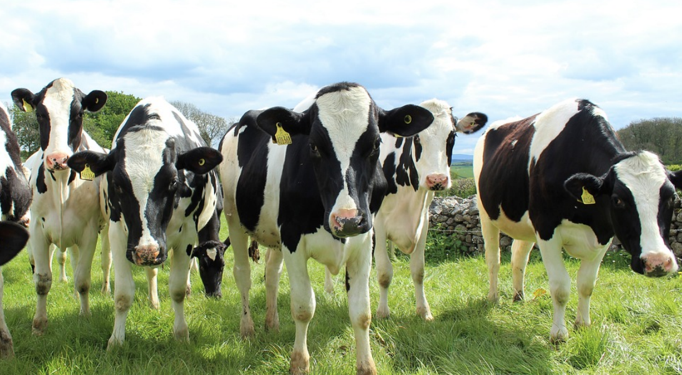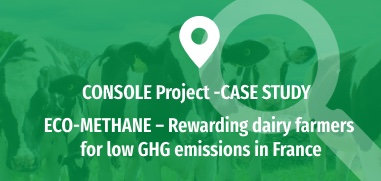Summary
The Eco-Methane program is a private-private result-based contractual solution. Methane emissions of dairy cows are estimated by frequent and regular infra-red analysis of their milk. Indeed, there is a correlation between an equilibrated feed ration, the composition of milk fatty acid and the emission of enteric gas (methane) by dairy cows. Farmers‘ payments depend on the difference in their methane emissions to a regional reference. They also depend on the donations by private companies to support their effort. Funds are collected by the Bleu-Blanc-Coeur fund for health-oriented agriculture and payments granted by the private association “Bleu-Blanc-Coeur” that also governs a food brand based on better animal nutrition for heathier human food.
The Eco-Methane method has been recognized by the French Ministry of Ecology in 2011 and by the United Nations in 2012, as a specific methodology for projects of methane emissions reductions of digestive origin trough the feed of dairy ruminants.
Objectives
- Reduce GHG emissions
- Increase zootechnical performances of the dairy cattle
Public Goods


Problem description
Animal breeding contributes for 14,5% of global GHG emissions (FAO) and on a dairy farm, the methane emitted by cows represents more than 50% of the + total GHG emissions of the farm. This contract solution was implemented in France with the initiative of a feed company and the association Bleu-Blanc-Coeur. Bleu- Blanc-Coeur is a label that focuses on the nutritional benefits of consuming products from animals fed with omega-3 rich feed ration. Furthermore, there is a correlation between an equilibrated feed ration, the composition of milk fatty acid and the emission of enteric gas (methane) by dairy cows. They have used the program Eco-Methane to encourage dairy farmers that could not be involved in their label (due to a lack of local adapted structures) to adopt practices that would reduce their methane emissions. The Eco-Methane method has been recognized by the French Ministry of Ecology in 2011 and by the United Nations in 2012, as a specific methodology for projects of methane emissions reductions of digestive origin trough the feed of dairy ruminants.
